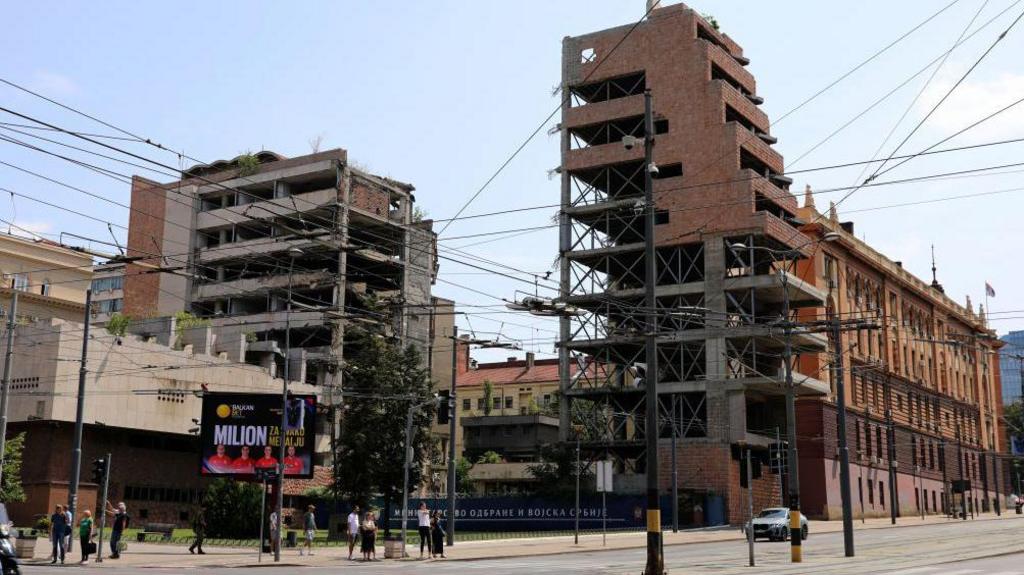Visitors to Belgrade are immediately confronted by the dilapidated remains of government buildings, bombed by NATO in 1999 and left largely untouched. This serves as a stark reminder of Serbia’s turbulent past and its ongoing reconciliation process.
The damaged Defence Ministry buildings stand as a poignant symbol. Their condition reflects the impact of NATO’s intervention to halt Serbia’s military campaign in Kosovo, an operation in which the United States played a key role.
Therefore, the Serbian government’s 2023 agreement with Affinity Global, a US company founded by Jared Kushner, to redevelop the site into a $500 million Trump Tower Belgrade complex, proved jarring for many Serbians.
This decision, however, is consistent with a pattern – as alleged by the Serbian opposition – of granting lucrative deals to foreign investors on public land. The Belgrade Waterfront project, developed by Emirati firms on Serbian railway land, serves as a prime example, although it’s been met with mixed public opinion.
Unlike the Belgrade Waterfront, the Defence Ministry complex holds greater symbolic weight, acting as a memorial to the bombing’s victims and a potent reminder of enduring anti-NATO sentiment and pro-Russia sympathies within Serbia.
Granting a 99-year lease to a US developer, reportedly without upfront payment, is a bold move. President Aleksandar Vučić, however, defends the decision, highlighting its importance in building better US relations. This viewpoint resonates with Belgrade’s international business community, eager to attract foreign investment to boost Serbia’s low GDP per capita, currently one-third the EU average.
While the financial details remain undisclosed, the New York Times reported that the Serbian government will receive 22% of future profits. James Thornley, a financial consultant, views the deal positively, emphasizing the positive publicity and investment attraction such a project brings. He believes that the benefits will outweigh the sensitivities.
However, not all share this optimism. Andrew Peirson, a real estate executive, while acknowledging the deal’s potential benefits, expresses concern over the lack of a transparent tendering process, a standard practice in other European countries.
Further complicating the matter are reports of meetings between Vučić and Kushner, followed by visits from Donald Trump Jr, raising questions about potential conflicts of interest during Donald Trump’s presidency. The Trump family’s role is reportedly limited to the hotel aspect of the project.
Peirson worries that this lack of transparency might negatively impact investor confidence. Despite requests for comment from Affinity Global and the Serbian government regarding the tendering process, no response was received.
Beyond the economic aspects, the project’s historical and architectural significance raises additional concerns. The buildings, designed by Nikola Dobrović, hold cultural value, possessing protected status under Serbian law. Estela Radonjic Zivkov, a former deputy director of Serbia’s Republic Institute for the Protection of Monuments, vehemently opposes the demolition.
A dramatic twist emerged on May 14th with the arrest of Goran Vasic, the official who approved the lifting of the complex’s protected status, on charges of forgery and abuse of office. This has fueled accusations of preferential treatment for Kushner, which the government denies.
The future of the Affinity Global project remains uncertain. While Affinity Global issued a statement distancing itself from Vasic and pledging to review the situation, Vučić maintains there is no issue. The fate of the Defence Ministry complex, and the Trump Tower Belgrade, continues to be a subject of intense debate and uncertainty, offering a compelling narrative for those observing Serbia’s evolving relationship with the West.

